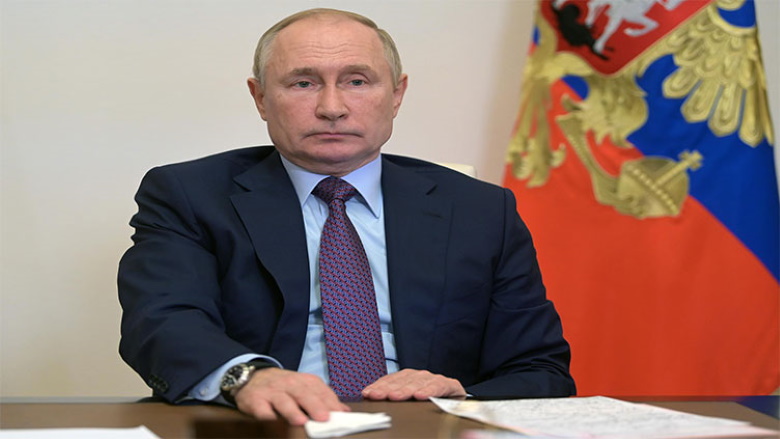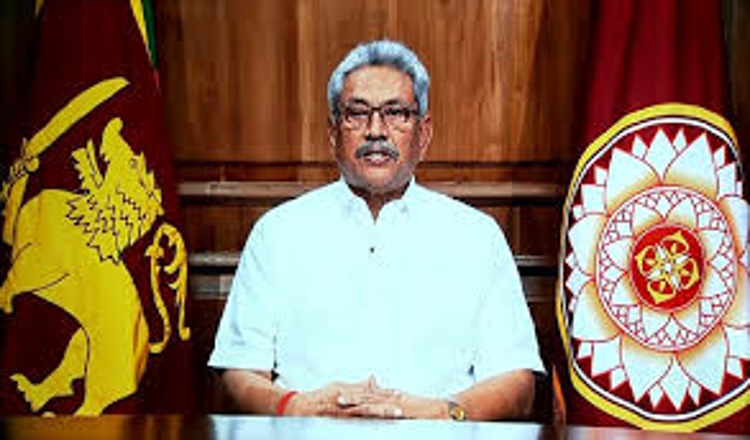 MOSCOW – Russia accused the West on Monday of seeking to push it into an “artificial default” through unprecedented sanctions over Ukraine, but vowed to meet its debt payments.
MOSCOW – Russia accused the West on Monday of seeking to push it into an “artificial default” through unprecedented sanctions over Ukraine, but vowed to meet its debt payments.
Russia is due to make an interest payment on its external debt later this week and Moscow warned it will be doing so in rubles if sanctions prevent it from using the currency of issue.
“The freezing of foreign currency accounts of the Bank of Russia and of the Russian government can be regarded as the desire of a number of foreign countries to organise an artificial default that has no real economic grounds,” Finance Minister Anton Siluanov said in a statement.
Ratings agency Fitch last week downgraded Russia s sovereign debt rating deeper into junk territory, warning that the decision reflects the view that a default is “imminent”.
But Siluanov denied that Russia “cannot fulfil the obligations” of its government debt.
– Ready to pay –
He said Russia “is ready to make payments in rubles” according to the exchange rate of Russia s central bank on the day of the payment.
While Russia s foreign currency government bonds issued since 2018 do contain provisions for repayment in rubles, that is not the case for the combined $117 million in interest payments on two dollar-denominated bonds on Wednesday.
Russia tumbled into default in 1998 when, thanks to a drop in the prices of oil and other commodities, it faced a financial squeeze that meant it could no longer prop up the ruble and pay off its debts which had swelled due to the first war in Chechnya.
The plunge in the value of the currency, a spike in inflation and bank collapses caused widespread misery and were seen as helping President Vladimir Putin s rise to power.
Putin had worked on improving Russia s finances by keeping debt low and using windfall oil export revenue to amass $600 billion foreign currency reserves.
But sanctions on Moscow over invasion of Ukraine targeted $300 billion of Russia s foreign currency reserves held abroad.
Without access to these funds to make payments, Russia could find itself forced to default, though the status of the Wednesday s payment remained uncertain.
According to analysts at JPMorgan, US sanctions “do not place direct restrictions” on Russia s ability to service the debt.
The sanctions imposed by Washington prohibit most financial transactions, though there are some exceptions, including payments for energy.
According to the US Treasury, interest payments to American entities “are permissible through May 25,” on bonds issued by Russia s Central Bank, Finance Ministry or National Wealth Fund before March 1.
Once that temporary authorization expires, “US persons would require a specific license to continue to receive such payments.”
The ratings agency Moody s warned last week that investors could face losses of 35 to 65 percent, as “Russia s ability and willingness to honour debt obligations has steadily deteriorated.”
– Unique situation –
Elina Ribakova, deputy chief economist at the Washington-based Institute of International Finance said the US Treasury could unlock part of Russia s foreign currency reserves to enable payment of the bondholders, who are mostly from countries which have imposed sanctions.
“It is a unique situation where the sanctioning party will be the deciding factor on Russia s 2022 default,” she said.
If Russia fails to make the bond payment, an automatic 30-day grace period kicks in and after its expiry it would be considered in default.
International Monetary Fund chief Kristalina Georgieva said Sunday that the while Russia has money to pay its debt, it “cannot access it”.
“I can say that no longer we think of Russian default as an improbable event,” Georgieva told the CBS show Face the Nation.
The Western sanctions on Moscow over Ukraine have delivered an unprecedented blow to Russia s banking and financial system and will likely lead major disruptions in trade and inflation.
The measures “won t affect the Russian government s ability to finance itself (beyond what sanctions have already done),” according to William Jackson of Capital Economics.
“The bigger risk is that it may be a prelude to defaults by Russian corporates, whose external debts are more than four times larger than those of the sovereign,” Jackson said.
AFP





